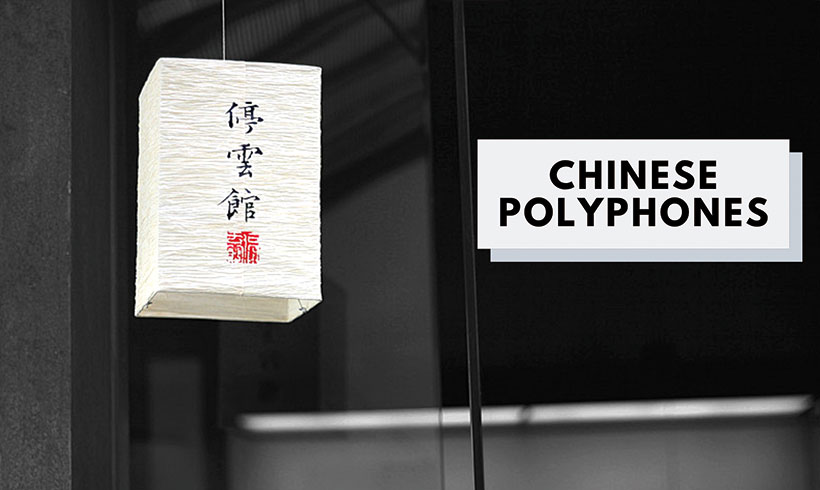Chinese learners often struggle with polyphones – characters with two or more pronunciations. In this article, we will look at 5 common Chinese polyphones.
Chinese Polyphones: One Character, Two Meanings
In simple words, polyphones are Chinese characters which, depending on the context, have two or more pronunciations. Chinese polyphones often make a sentence (or even the whole article) quite difficult to understand. So mastering them is one more step to becoming a pro!
行 xíng vs. 行 háng

行 xíng is a formal term meaning “to walk”. Some typical examples with 行 xíng include words like:
旅行 lǚxíng (to travel)
行李 xínglǐ (luggage)
行踪 xíngzōng (trace), and so on.
行 háng means “bureau”, and the use of this character is often related to government apparatus, such as 银行 yínháng (bank).
Examples:
Tom非常喜欢旅行。Tom fēicháng xǐhuan lǚxíng. (Tom really likes travelling.)
我的家附近有一个银行。Wǒde jiā fùjìn yǒu yī gè yínhang. (There is a bank near my house.)
难 nán vs. 难 nàn

难 nán is usually used as an adjective, which means “difficult”. You can use it to describe literally anything – a task, an exam, or even a time period.
难 nàn can be only treated as a noun, and it means “catastrophe”.
Examples:
我觉得中文很难。Wǒ juéde zhōngwén hěn nán. (I think Chinese is very difficult.)
那场森林大火是个灾难。Nà chǎng sēnlín dàhuǒ shì gè zāinàn. (The forest fire was a catastrophe.)
干 gān vs. 干 gàn

干 gān can be used on its own as an adjective meaning “dry”. However, 干 gàn is a colloquial word for “to do”, which is similar to 做 zuò. In addition, 干 gàn can be only used in certain collocations, which means 干 gàn and 做 zuò are not always interchangeable.
Examples:
我喜欢吃牛肉干。Wǒ xǐhuan chī niúròu gān. (I like beef jerky.)
你在干什么?Nǐ zài gàn shénme? (What are you doing?)
还 hái vs. 还 huán

Both characters can be used on their own and are very commonly used in Chinese people’s daily life. 还 hái is an adverb meaning “still, also”, whereas 还 huán is usually used as a verb meaning “to return something, to give something back”.
Examples:
除了英语,他还会说法语。Chúle yīngyǔ, tā hái huì shuō fǎyǔ. (Besides English, he can also speak French.)
他还你钱了吗?Tā huán nǐ qián le ma? (Did he give you your money back?)
便 pián VS. 便 biàn

Both 便 pián and 便 biàn are rarely used on their own. They are usually followed by other characters to form proper words. One of the most popular words containing 便 pián is 便宜 piányi, which means ‘cheap, inexpensive’. And an extremely useful word with 便 biàn is 方便 fāngbiàn, which means ‘convenient’.
Examples:
这些鞋子很便宜。Zhèxiē xiézi hěn piányi. (These shoes aren’t expensive.)
这个手机用起来很方便。Zhège shǒujī yòngqǐlái hěn fāngbiàn. (This mobile phone is very easy to use.)
[If you like this post, you can also have a look at our article about “Chinese reversible words” here!]
[There’re lots of homonyms in English. But how many Chinese homonyms do you know? You can read about them in our post here!]
What other polyphones do you know?
Share in comments – or tweet us at @thatsmandarin!









0 Comments